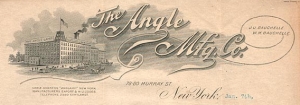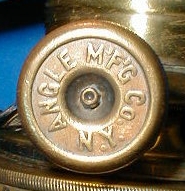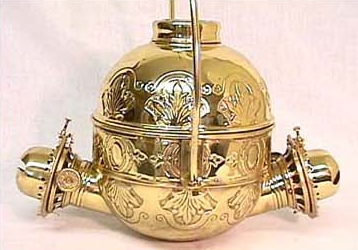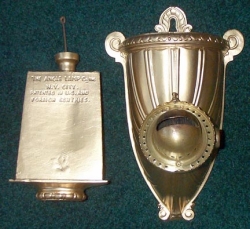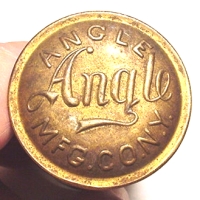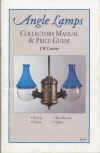His first patent, number 392,418, was granted on November 6, 1888. It is intersting to note that the application was filed on August 11, 1885, fully three years prior to the patent grant. In the patent papers, Fell claims: The object of my invention is to provide an improved means for feeding oil to burners by a system of siphon-tubes, and to use in connection therewith an angular or horizontal burner, whereby a better and more effective light is obtained; and a further object is to provide a globe or chimney of a peculiar form and construction to be used in connection with my angular or horizontal burners.
The general components of the Angle Lamp are the lamp body, which receives the removable oil reservoir and to which the burner(s) are attached; the burner(s); and the lamp glass which consists of an elbow and a chimney-shade. All Angle Lamps are of similar construction and are readily identifiable as such. With the exception of the Classic Table Lamp, all Angle Lamps were either hanging or wall mounted. The wall mounted versions came in single and double burner varieties. Hanging models generally came in two, three or four burner varieties. The Chandelier, a more ornate and expansive model, was advertised in four, six and eight burner sizes. Ceiling extensions were sold as an option so that the lamps could be raised and lowered as needed for cleaning, filling and lighting, or for varying lighting requirements. To view an early Angle Lamp advertisement, click here.
I have made no attempt here on this page to give the entire story of The Angle Lamp Company or the great variety of lamps that they produced over the years. For more detailed information on Angle Lamps, including manufacturing history, maker's marks, patterns, glass and collector tips, I encourage you to read the book, Angle Lamps Collectors Manual & Price Guide by J.W. Courter. Copies of this guide and an Angle Lamp catalog are available from the Book Nook Bookshop on this web site.  Patents for The Angle Lamp Patents for The Angle LampTo view the complete patent, select the patent you wish to view, then click Query USPTO Database. This will take you to the U.S. Patent & Trademark Office Database. You are then just two mouse clicks away from viewing the actual patent. Learn more about the USPTO here. End Notes
References
|
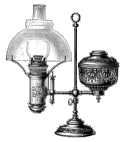
| Reference Desk | Lamp Information | Other Resources | On-Line Shopping |

Purveyors of Antique Lighting and Accessories
435 Main Street
 Hurleyville, New York 12747
Hurleyville, New York 12747
|
Tops for the Angle Lamp |
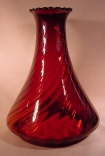 Cranberry or Ruby
Cranberry or Ruby
|
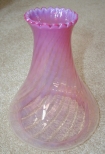 Pink Opalescent
Pink Opalescent
|
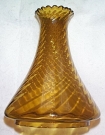 Amber Swirl
Amber Swirl
|
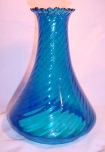 Blue Swirl
Blue Swirl
|
a brief historical profile of

The Angle Lamp Company
^ Top of Page
Privacy Policy | Terms and Conditions of Use | Announcements
Copyright © 2001-2011 ~ Daniel Edminster | The Lampworks ~ All Rights Reserved
